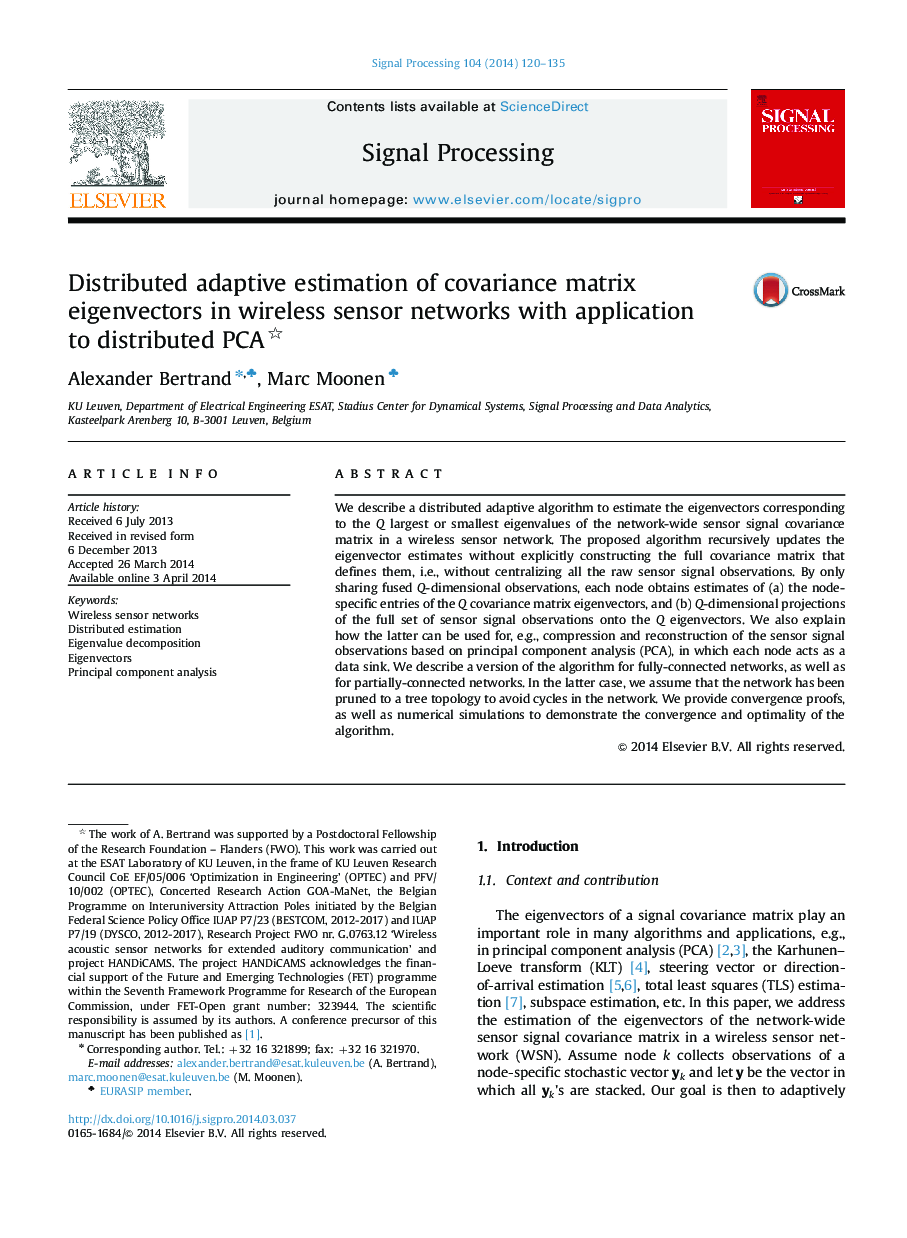| Article ID | Journal | Published Year | Pages | File Type |
|---|---|---|---|---|
| 563766 | Signal Processing | 2014 | 16 Pages |
•The eigenvectors of a covariance matrix play an important role in many algorithms.•We estimate eigenvectors without constructing a network-wide covariance matrix.•DACMEE yields a significant reduction in bandwidth and computational complexity.
We describe a distributed adaptive algorithm to estimate the eigenvectors corresponding to the Q largest or smallest eigenvalues of the network-wide sensor signal covariance matrix in a wireless sensor network. The proposed algorithm recursively updates the eigenvector estimates without explicitly constructing the full covariance matrix that defines them, i.e., without centralizing all the raw sensor signal observations. By only sharing fused Q-dimensional observations, each node obtains estimates of (a) the node-specific entries of the Q covariance matrix eigenvectors, and (b) Q-dimensional projections of the full set of sensor signal observations onto the Q eigenvectors. We also explain how the latter can be used for, e.g., compression and reconstruction of the sensor signal observations based on principal component analysis (PCA), in which each node acts as a data sink. We describe a version of the algorithm for fully-connected networks, as well as for partially-connected networks. In the latter case, we assume that the network has been pruned to a tree topology to avoid cycles in the network. We provide convergence proofs, as well as numerical simulations to demonstrate the convergence and optimality of the algorithm.
